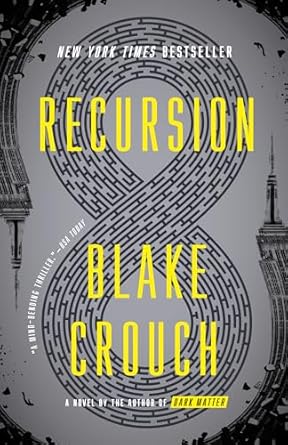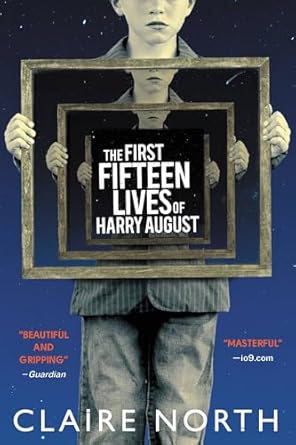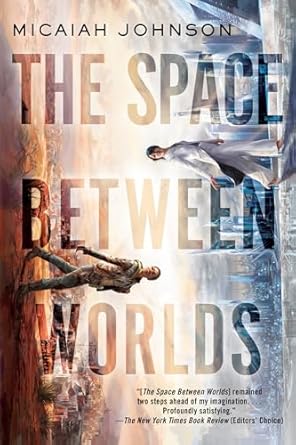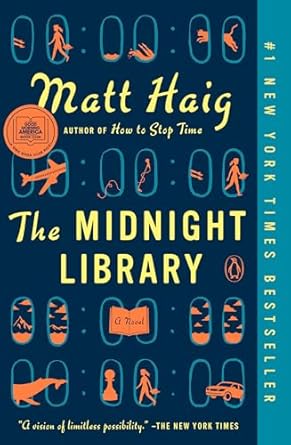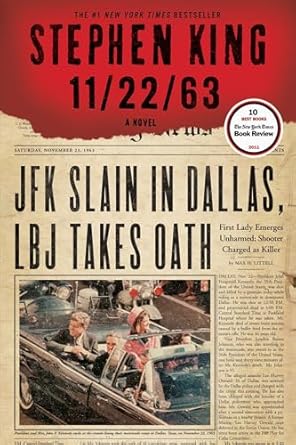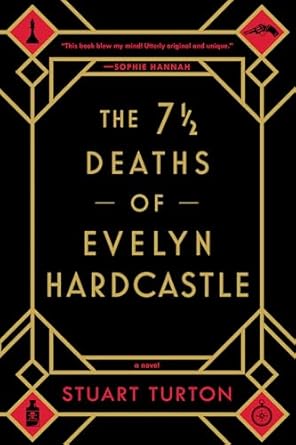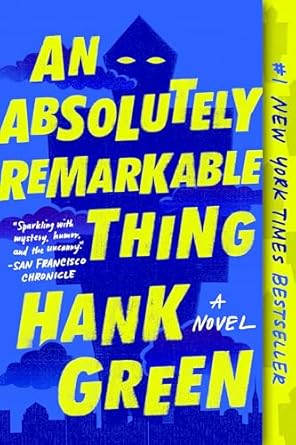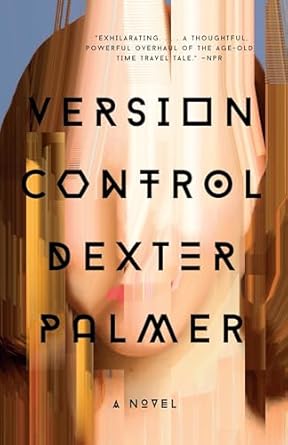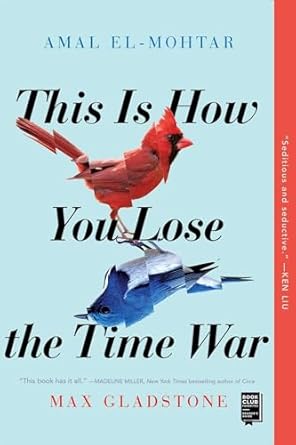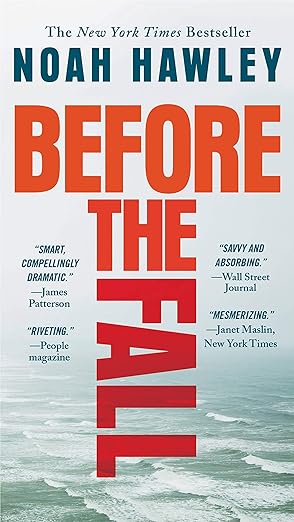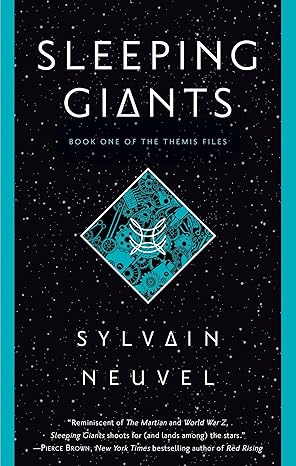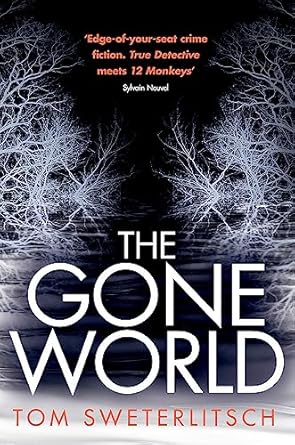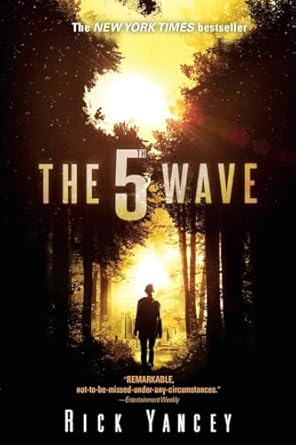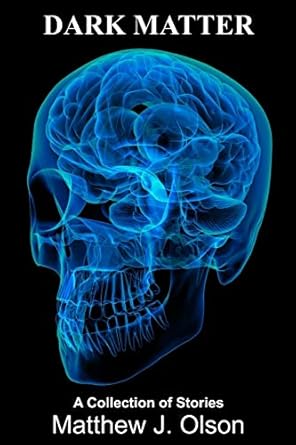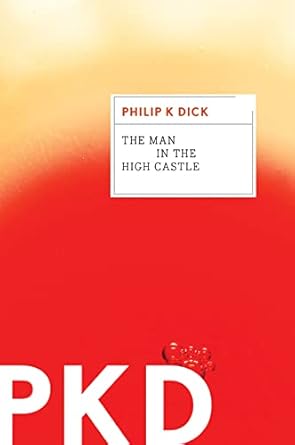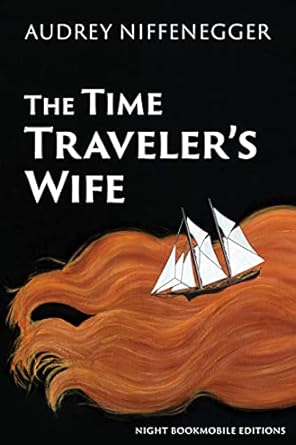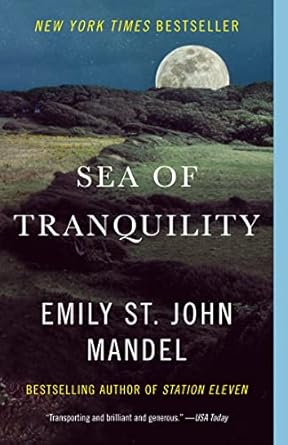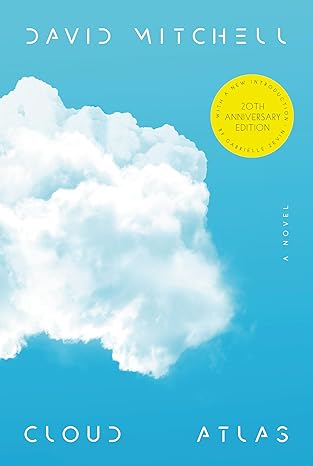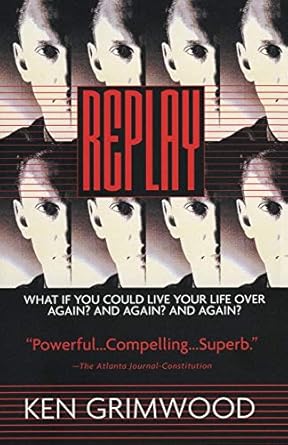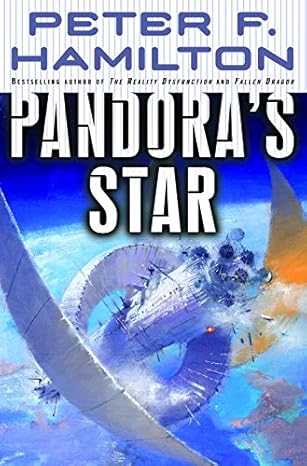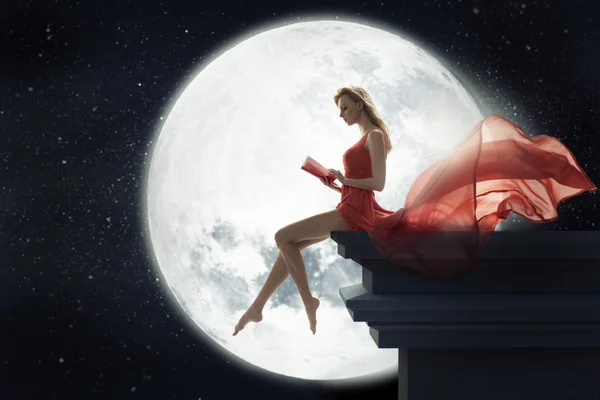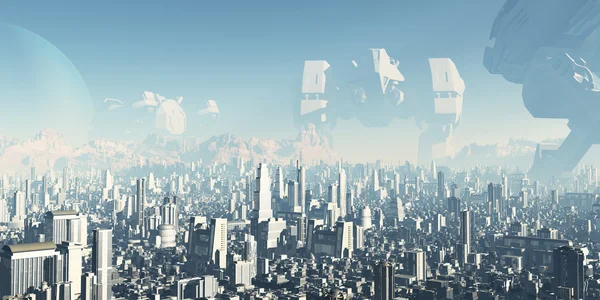Summary: In this article, I have compiled 20 books like Dark Matter that capture the same blend of mind-bending science fiction, suspense, and emotional depth. Here are my top 3 picks:
- Recursion by Blake Crouch
- The First Fifteen Lives of Harry August by Claire North
- The Space Between Worlds by Micaiah Johnson
If you couldn’t get enough of Dark Matter by Blake Crouch, you’re probably on the hunt for more mind-bending, fast-paced stories that mix sci-fi with big, thought-provoking ideas. Books like Dark Matter dive into alternate realities, mess with time and memory, and make you question what’s real—just like the best kind of thrillers do. Whether you're into the multiverse, identity twists, or just love a smart page-turner, these reads are perfect for keeping you hooked from start to finish.
TOP 20: Best Books Like Dark Matter
- Recursion by Blake Crouch
- The First Fifteen Lives of Harry August by Claire North
- The Space Between Worlds by Micaiah Johnson
- The Midnight Library by Matt Haig
- 11/22/63 by Stephen King
- The Seven Deaths of Evelyn Hardcastle by Stuart Turton
- An Absolutely Remarkable Thing by Hank Green
- Version Control by Dexter Palmer
- This Is How You Lose the Time War by Amal El-Mohtar & Max Gladstone
- Before the Fall by Noah Hawley
- Sleeping Giants by Sylvain Neuvel
- The Gone World by Tom Sweterlitsch
- The 5th Wave by Rick Yancey
- Dark Matter by Michelle Paver
- The Man in the High Castle by Philip K. Dick
- The Time Traveler’s Wife by Audrey Niffenegger
- Sea of Tranquility by Emily St. John Mandel
- Cloud Atlas by David Mitchell
- Replay by Ken Grimwood
- Pandora’s Star by Peter F. Hamilton
1. Recursion
- Author: Blake Crouch
- About: A neuroscientist and a cop uncover a technology that lets people relive and alter their memories, triggering a terrifying phenomenon called “False Memory Syndrome” that warps reality itself.
- Style of Writing: Fast-paced, cinematic, and accessible with tight prose and emotional stakes.
- Length: ~100,000 words
- Year Written: 2019
- Emotional Impact: High. Explores love, loss, memory, and identity in a way that sticks with you.
- Difficulty Level: Moderate; scientific elements are explained clearly.
- Why Read It: A mind-bending sci-fi thriller with heart. Perfect if you liked Dark Matter and want more emotional weight with your twists.
2. The First Fifteen Lives of Harry August
- Author: Claire North
- About: Harry is born again and again into the same life, remembering everything each time. When a message is passed to him from the future, it sets off a mission to save the world from destruction.
- Style of Writing: Literary and philosophical with layered, reflective prose.
- Length: ~110,000 words
- Year Written: 2014
- Emotional Impact: High. A deep exploration of morality, time, and existential questions.
- Difficulty Level: Medium to high. Some nonlinear storytelling and abstract themes.
- Why Read It: It’s Groundhog Day meets a secret society of immortals. Thoughtful, smart, and emotionally resonant.
3. The Space Between Worlds
- Author: Micaiah Johnson
- About: Cara travels between alternate universes, but only to worlds where her counterparts are dead. As she learns more about her other selves, she uncovers dangerous secrets that question her own identity.
- Style of Writing: Gritty, poetic, and character-driven with social commentary.
- Length: ~95,000 words
- Year Written: 2020
- Emotional Impact: Medium-high. Offers strong themes of identity, class, and survival.
- Difficulty Level: Moderate; multiverse concept is complex but well explained.
- Why Read It: A sharp, fresh sci-fi with a powerful voice and themes of systemic inequality.
4. The Midnight Library
- Author: Matt Haig
- About: Caught between life and death, Nora explores alternate lives in a magical library to find what truly makes life worth living.
- Style of Writing: Simple, poetic, accessible with philosophical undertones.
- Length: ~85,000 words
- Year Written: 2020
- Emotional Impact: High for many readers. Deals with regret, depression, and hope.
- Difficulty Level: Easy. Very approachable and readable.
- Why Read It: A heartfelt meditation on life, choices, and the infinite possibilities of living. Gentle but profound.
5. 11/22/63
- Author: Stephen King
- About: A teacher finds a time portal and attempts to stop the JFK assassination, but time doesn't like being changed.
- Style of Writing: Immersive, richly detailed, blending historical fiction with time-travel suspense.
- Length: ~270,000 words (a hefty read!)
- Year Written: 2011
- Emotional Impact: Very high. The ending packs a serious punch and explores love and destiny.
- Difficulty Level: Moderate. Historical references may require some context.
- Why Read It: If you're into alternate histories, time-travel dilemmas, and a great love story—it’s one of King’s best.
6. The Seven Deaths of Evelyn Hardcastle
- Author: Stuart Turton
- About: A man wakes up every day in a new body, reliving the same day over and over, until he solves a murder.
- Style of Writing: Intricate, puzzle-like, with a gothic flair and period setting.
- Length: ~130,000 words
- Year Written: 2018
- Emotional Impact: Moderate. More intellectual than emotional but very compelling.
- Difficulty Level: High. Nonlinear timeline, multiple POVs, and plot complexity require close reading.
- Why Read It: For mystery lovers who enjoy cerebral time loops and Agatha Christie meets Inception vibes.
7. An Absolutely Remarkable Thing
- Author: Hank Green
- About: When April May stumbles across a mysterious statue (a “Carl”) and uploads a viral video about it, she becomes an overnight celebrity and unwittingly part of a global phenomenon with sci-fi twists.
- Style of Writing: Conversational, fast-paced, first-person with a modern social media lens.
- Length: ~95,000 words
- Year Written: 2018
- Emotional Impact: Medium-high. It thoughtfully critiques fame, identity, and the internet.
- Difficulty Level: Easy to moderate. Pop-culture heavy but layered with smart themes.
- Why Read It: For fans of quirky, character-driven stories with heart, mystery, and commentary on internet culture.
8. Version Control
- Author: Dexter Palmer
- About: In a slightly futuristic America, a physicist’s “causality violation device” (definitely not a time machine!) begins altering reality. Meanwhile, his wife senses something is wrong with the world.
- Style of Writing: Literary, slow-burn, dense with ideas and character development.
- Length: ~160,000 words
- Year Written: 2016
- Emotional Impact: High. Quietly haunting and intellectually rich.
- Difficulty Level: High. Detailed science and character introspection demand attention.
- Why Read It: For readers who like deep philosophical sci-fi about memory, causality, and relationships.
9. This Is How You Lose the Time War
- Authors: Amal El-Mohtar & Max Gladstone
- About: Two rival agents on opposite sides of a time-traveling war begin leaving letters for one another across the timelines—letters that evolve into a forbidden romance.
- Style of Writing: Lyrical, poetic, experimental. Told through correspondence and poetic prose.
- Length: ~43,000 words (a novella)
- Year Written: 2019
- Emotional Impact: Very high. Achingly beautiful and romantic in a cosmic way.
- Difficulty Level: High. Abstract language and nonlinear narrative.
- Why Read It: For fans of poetic sci-fi and queer love stories that transcend time and genre.
10. Before the Fall
- Author: Noah Hawley
- About: A private plane crashes into the ocean, and only two survivors emerge. As the media swirls, the mystery unfolds about why the plane went down—and what secrets the passengers held.
- Style of Writing: Suspenseful, character-driven, literary thriller.
- Length: ~115,000 words
- Year Written: 2016
- Emotional Impact: Medium. Focuses on human nature, fate, and survival.
- Difficulty Level: Moderate. Multiple timelines and perspectives.
- Why Read It: For those who love mystery mixed with character exploration and a touch of social critique.
11. Sleeping Giants
- Author: Sylvain Neuvel
- About: A young girl discovers a giant robot hand buried in the earth. Years later, as a scientist, she helps lead the team piecing together an ancient, otherworldly robot—via interviews and reports.
- Style of Writing: Epistolary (told through interview transcripts, journal entries, etc.); brisk and unconventional.
- Length: ~90,000 words
- Year Written: 2016
- Emotional Impact: Medium-high. Blends awe, fear, and curiosity about humanity’s place in the universe.
- Difficulty Level: Moderate; unique format may take adjusting.
- Why Read It: For fans of World War Z’s format, Arrival-style mystery, and big ideas wrapped in gripping dialogue.
12. The Gone World
- Author: Tom Sweterlitsch
- About: A Navy investigator travels through time to prevent a coming apocalypse known as “the terminus of all things.” A mix of murder mystery, sci-fi thriller, and cosmic horror.
- Style of Writing: Dark, moody, intense, with vivid prose and time-travel complexity.
- Length: ~135,000 words
- Year Written: 2018
- Emotional Impact: High. Deeply unsettling and existential.
- Difficulty Level: High. Complex timelines and disturbing imagery.
- Why Read It: If you want True Detective meets Interstellar meets Event Horizon—it’s bold, weird, and unforgettable.
13. The 5th Wave
- Author: Rick Yancey
- About: After a devastating alien invasion, 16-year-old Cassie searches for her brother while struggling to survive in a world of suspicion, violence, and shifting loyalties.
- Style of Writing: YA dystopian with alternating POVs and internal monologues.
- Length: ~100,000 words
- Year Written: 2013
- Emotional Impact: Medium. Suspenseful and bleak but with emotional core.
- Difficulty Level: Easy to moderate (aimed at YA audience).
- Why Read It: Great if you enjoy fast-paced post-apocalyptic survival stories with aliens and teenage grit.
14. Dark Matter
- Author: Michelle Paver
- About: Set in the 1930s, a failed academic joins an Arctic expedition, where isolation and the endless polar night begin to blur the line between reality and something more ghostly.
- Style of Writing: Atmospheric, slow-burn, Gothic-style horror.
- Length: ~75,000 words
- Year Written: 2010
- Emotional Impact: High for readers who enjoy tension, loneliness, and psychological horror.
- Difficulty Level: Moderate; literary and introspective, with period-specific details.
- Why Read It: A chilling survival tale that feels like The Terror meets The Shining, with a paranormal twist.
15. The Man in the High Castle
- Author: Philip K. Dick
- About: In an alternate history where the Axis powers won WWII, the U.S. is divided between Japanese and Nazi control. A mysterious book (and a mysterious man) hint at another possible reality.
- Style of Writing: Philosophical, mind-bending, subtle—classic PKD.
- Length: ~80,000 words
- Year Written: 1962
- Emotional Impact: High for thoughtful readers; a haunting meditation on fate, history, and identity.
- Difficulty Level: High. Nonlinear plot, cryptic symbolism, and the I Ching make this a complex read.
- Why Read It: For its historical and philosophical depth, and because it helped shape modern alt-history sci-fi.
16. The Time Traveler’s Wife
- Author: Audrey Niffenegger
- About: A unique love story between Henry, who involuntarily travels through time, and Clare, who has to live linearly while waiting for him to reappear.
- Style of Writing: Lyrical, romantic, dual narrative with deep emotional focus.
- Length: ~155,000 words
- Year Written: 2003
- Emotional Impact: Very high. Deeply moving and often heartbreaking.
- Difficulty Level: Moderate. Nonlinear timeline can be tricky but is well-executed.
- Why Read It: For a beautiful and poignant twist on both romance and time travel.
17. Sea of Tranquility
- Author: Emily St. John Mandel
- About: Spanning centuries—from a Canadian forest in 1912 to a moon colony in 2401—this novel ties together lives through a mysterious anomaly in time and space.
- Style of Writing: Elegant, contemplative, episodic with interconnected threads.
- Length: ~65,000 words
- Year Written: 2022
- Emotional Impact: High. Quietly powerful and introspective.
- Difficulty Level: Moderate. Jumps in time and subtle motifs demand some focus.
- Why Read It: For fans of literary sci-fi with philosophical questions and pandemic-era reflections.
18. Cloud Atlas
- Author: David Mitchell
- About: Six interwoven stories across time—from the 19th century to a post-apocalyptic future—explore how actions ripple through history.
- Style of Writing: Complex, layered, genre-hopping (historical, sci-fi, dystopian, thriller).
- Length: ~170,000 words
- Year Written: 2004
- Emotional Impact: Very high. It’s a tapestry of human struggle, morality, and recurrence.
- Difficulty Level: High. Demands attention for structure, language changes, and big themes.
- Why Read It: For one of the most ambitious and rewarding explorations of cause and effect across time.
19. Replay
- Author: Ken Grimwood
- About: A man dies of a heart attack at 43—then wakes up in his 18-year-old body. And it keeps happening. But what would you do if you had to live your life over and over?
- Style of Writing: Thoughtful, emotionally grounded, straightforward prose.
- Length: ~110,000 words
- Year Written: 1986
- Emotional Impact: Very high. Reflective and philosophical; resonates with regret and wonder.
- Difficulty Level: Moderate. Simple language, deep themes.
- Why Read It: It’s the original Groundhog Day for grown-ups. Incredibly moving and memorable.
20. Pandora’s Star
- Author: Peter F. Hamilton
- About: In a far-future galaxy teeming with life and human expansion, a star mysteriously vanishes—prompting the discovery of an ancient alien threat.
- Style of Writing: Epic hard sci-fi; dense, sprawling, world-building heavy.
- Length: ~375,000 words
- Year Written: 2004
- Emotional Impact: Medium-high. Not deeply emotional, but awe-inspiring in scope.
- Difficulty Level: High. Massive cast, slow buildup, and serious science.
- Why Read It: For fans of space opera with political intrigue, alien mysteries, and big-universe stakes.
Conclusion
If Dark Matter left you wanting more mind-bending twists and thought-provoking sci-fi, I think these three books should be at the top of your list. Recursion by Blake Crouch dives deep into the complexities of memory and time, and it kept me on the edge of my seat. The First Fifteen Lives of Harry August explores what it would be like to relive your life over and over, and I found it both fascinating and thought-provoking. For something that tackles the multiverse in a fresh way, The Space Between Worlds by Micaiah Johnson offers a gripping, insightful take on alternate realities. All three of these novels really pushed the boundaries of reality for me, just like Dark Matter did.

